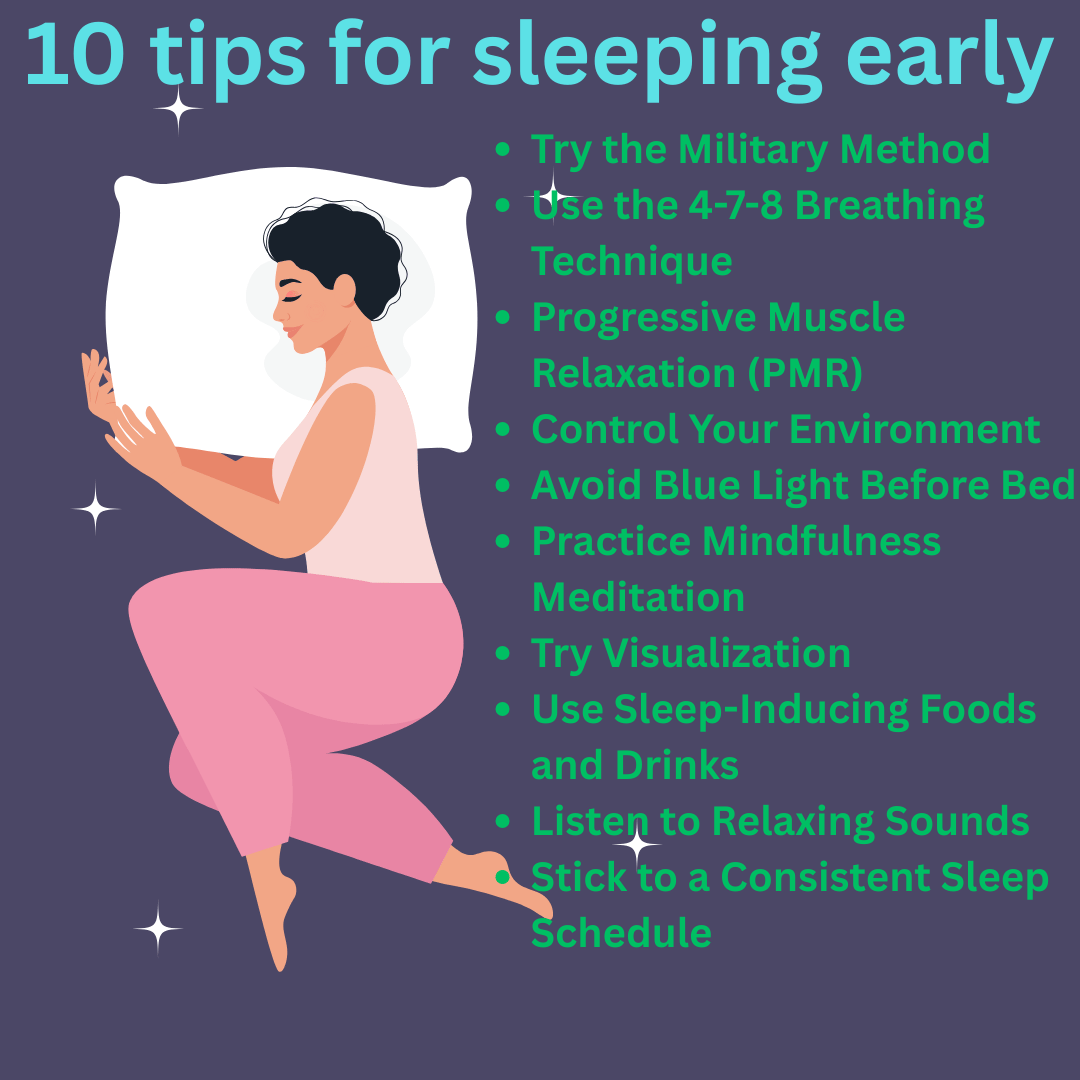Achieving quality sleep is crucial for any healthy lifestyle. However, falling asleep remains a challenge for many. If you fit the profile of someone who lies in bed for hours, endlessly shifting positions, then you are in good company. The good news is that whether you sleep with the help of proven scientific methods, or prefer practical techniques, you can now sleep faster — at times, in as little as 5 minutes.
In this detailed guide, we will discuss the techniques you can use to sleep in 5 minutes, the reasons why quick sleep is important, and what you can do to maintain a healthy lifestyle that will ensure you have good sleep.
Why Learning How to Sleep Fast Matters
- Sleep is important for multiple reasons; it is a time when the body can repair itself, the brain consolidates memories, and hormones can be regulated. If you don’t sleep well, this is what may happen:
- Increased fatigue and loss of focus.
- Rising stress levels.
- Increased weight, anxiety, and a weakened immune system.
- Increased risk of long-term serious health conditions such as diabetes, heart disease, and depression.
- When trying to get a good night’s sleep, the goal is to fall asleep as fast as possible. Learning techniques that will allow you to sleep in 5 to 10 minutes will help greatly.
- Comprehending the Process of Falling Asleep
- It is essential to grasp the biological processes sleep involves prior to examining the sleep methods.
Sleep is regulated by two major systems
- Circadian Rhythm – Your body’s internal clock that tells you when it’s time to sleep and wake up.
- Sleep Drive – The pressure your body builds up to sleep the longer you’re awake.
When these systems work together and you practice good habits, falling asleep fast becomes much easier.
How to Sleep Fast in 5 Minutes: Effective Techniques
Here are the best scientifically proven ways to fall asleep within 5 minutes.
1. Try the Military Method
The Military Method is a famous technique reportedly used by soldiers to fall asleep quickly in stressful environments. It usually takes around 2 minutes to relax, and within 5 minutes, many people can drift off.
Steps:
- Lie flat on your back in bed.
- Relax your face completely – release tension from your eyes, jaw, and forehead.
- Drop your shoulders and let your arms fall naturally.
- Exhale slowly, relaxing your chest.
- Focus on relaxing your legs, starting from the thighs down to your toes.
- Clear your mind by imagining a calm place, like lying in a field or floating in water.
- If thoughts come, repeat: “Don’t think, don’t think, don’t think.”
This method trains your body to release tension and helps you fall asleep in less than 5 minutes with practice.
2. Use the 4-7-8 Breathing Technique
This breathing exercise, also known as the relaxing breath, helps calm the nervous system and reduce anxiety, making it easier to fall asleep quickly.
-
Steps:
- Inhale quietly through your nose for 4 seconds.
- Hold your breath for 7 seconds.
- Exhale completely through your mouth for 8 seconds.
- Repeat the cycle at least 4 times.
Within a few minutes, your heart rate slows, your body relaxes, and you’re ready for deep sleep.
3. Progressive Muscle Relaxation (PMR)
Tension in the body can delay sleep. PMR helps release stress by tensing and relaxing different muscle groups.
Steps:
- Start with your toes: tense them for 5 seconds, then relax.
- Move upward — calves, thighs, abdomen, arms, and face.
- Focus on the difference between tension and relaxation.
This simple technique reduces stress and signals your body to fall asleep faster.
4. Control Your Environment
Your sleep environment plays a huge role in how quickly you fall asleep. To fall asleep in 5 minutes, ensure the following:
- Room Temperature: Keep it cool (around 18–20°C).
- Lighting: Use blackout curtains or a sleep mask.
- Noise: Use earplugs or white noise machines.
- Comfort: Invest in a quality mattress and pillow.
When your brain associates your bedroom with comfort, it becomes easier to drift off instantly.
5. Avoid Blue Light Before Bed
Exposure to blue light from phones, TVs, and computers reduces melatonin production, delaying sleep.
To fall asleep fast:
- Avoid screens at least 30–60 minutes before bed.
- Use blue light filters or wear blue-light-blocking glasses if you must use devices.
- Replace late-night scrolling with reading a book or meditation.
6. Practice Mindfulness Meditation
A busy mind is one of the biggest enemies of quick sleep. Mindfulness meditation helps calm racing thoughts.
How to practice:
- Sit or lie in a comfortable position.
- Focus on your breathing.
- Acknowledge wandering thoughts but gently return to your breath.
Within minutes, your body relaxes, and sleep comes naturally.
7. Try Visualization
Imagination can trick your brain into relaxing.
Example:
- Visualize yourself lying on a beach, waves crashing softly, warm sun on your skin. Imagine every detail — sound, smell, and touch.
- Your mind gets distracted by stress, making it easier to fall asleep instantly.
8. Use Sleep-Inducing Foods and Drinks
Certain foods naturally promote sleep by boosting melatonin and serotonin.
- Warm milk
- Chamomile tea
- Bananas
- Cherries
- Nuts like almonds and walnuts
Avoid caffeine, alcohol, and heavy meals before bed as they delay sleep.
9. Listen to Relaxing Sounds
Soothing music or white noise can help you fall asleep in 5 minutes. Popular options include:
- Rain sounds
- Ocean waves
- Soft instrumental music
- Sleep stories or guided meditation
These sounds calm your nervous system and reduce stress.
10. Stick to a Consistent Sleep Schedule
Your body loves routine. Going to bed and waking up at the same time daily improves your circadian rhythm, helping you fall asleep much faster over time.
Additional Lifestyle Changes for Better Sleep
If you want to fall asleep in 5 minutes every night, you must also improve your overall sleep hygiene.
Exercise During the Day
Regular exercise helps regulate your body clock and promotes deeper sleep. Aim for 30 minutes of moderate activity daily, but avoid intense workouts right before bed.
Limit Naps
Daytime naps longer than 20–30 minutes can interfere with nighttime sleep. If you must nap, keep it short and earlier in the day.
Manage Stress
Chronic stress increases cortisol, which keeps you awake. To relax:
- Journal before bed.
- Practice yoga.
- Try deep breathing exercises.
Avoid Stimulants Before Bed
Caffeine, nicotine, and alcohol disrupt sleep. Try to avoid them at least 4–6 hours before bedtime.
Frequently Asked Questions (FAQs)
- Can you really fall asleep in 5 minutes?
Yes, with practice and the right techniques like the Military Method or 4-7-8 breathing, many people can fall asleep in under 5 minutes. - What’s the fastest way to fall asleep?
Relaxation techniques such as deep breathing, muscle relaxation, and controlling your sleep environment are the fastest ways to fall asleep. - How can I sleep instantly if I’m stressed?
Try mindfulness meditation, calming music, or visualization to quiet your mind and fall asleep instantly. - Does drinking milk before bed help?
Yes, warm milk contains tryptophan, which promotes melatonin production, helping you sleep faster. - What should I avoid before sleeping?
Avoid caffeine, alcohol, heavy meals, and screen time at least an hour before bed.
Final Thoughts
Learning how to fall asleep in 5 minutes is possible with the right techniques and habits. From the Military Method to 4-7-8 breathing, progressive relaxation, and creating the perfect sleep environment, you can train your body and mind to drift off almost instantly.
Remember, consistency is key. By practicing these tips nightly, improving your lifestyle, and managing stress, you’ll not only fall asleep faster but also enjoy better quality sleep — leading to a healthier, happier life.

